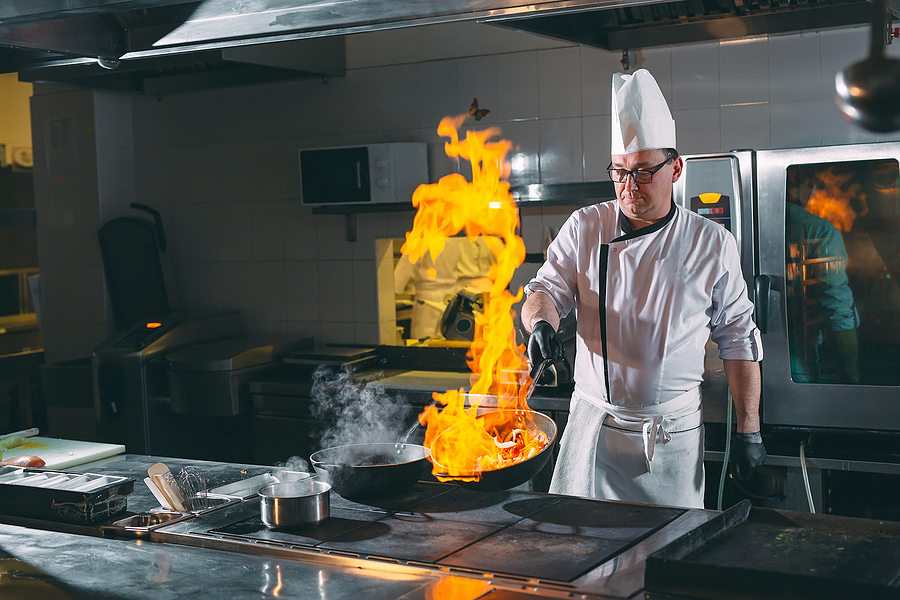Many people’s mental image of a New Mexico restaurant’s kitchen includes a noisy, chaotic place where many different things are happening simultaneously. There are appetizers in the fryer, customers waiting to pick up their orders, and chefs slaving away over the grill. Work here is fascinating, but beware: it’s a high-risk area for fires.
Over $500 million in property damage and numerous injuries are attributed to the estimated 9,800 annual restaurant fires in the United States.
Most of those fires begin where?
This would be the kitchen, of course. Statistics reveal that kitchen fires account for 65 percent of all restaurant fires.
Fires pose a major risk to the lives and property of those working in and visiting restaurants. The destruction caused by these fires can be minimized, if not eliminated, with the implementation of effective rules, training, and preventative measures.
If you want to make sure that your restaurant’s kitchen is safe, you should use these methods:
Please Maintain Tidiness
It is common practice for kitchen fires to be started by the careless use of open flame on combustibles such as cooking oil and grease. Grease not only accumulates on cooking surfaces but also attracts food and paper scraps, increasing the surface’s flammability.
Accidental fires can be avoided by taking special care of grease traps and keeping them clean and clear of buildup and debris. The same holds for any place used to store cooking oil or any surface prone to grease buildup (such as exhaust hoods, hood filters, flat top grills, etc.).
Although no kitchen is fully safe from fire, taking precautions such as keeping cooking surfaces clean and ensuring employees recognize the dangers of grease and oil buildup will help greatly.
Fixtures and Mechanical Upkeep
Avoid saving money by taking any chances with fire safety. Preventative and safety measures that are regularly serviced can reduce costs significantly over time.
This necessitates the availability of fire extinguishers that have been regularly inspected and serviced. Installing a fire-suppression system in the kitchen that releases chemicals automatically in the event of a fire is another prudent measure. Alternatively, these systems can be manually operated to cut off electricity or fuel to the stovetop.
The appliances used to prepare meals are sometimes forgotten. The same is true of other appliances; deep fryers can be quite dangerous if not regularly serviced. Also, if your hood filters are dirty or broken, the oil may accumulate in your ducts, which is a major fire hazard in and of itself.
Additionally, the roof must not be overlooked. Grease fumes are sucked out of the kitchen by the exhaust hood, transported via the ductwork, and expelled by the fan located on the roof. The grease will leak from the fan onto the roof, creating a fire hazard, unless a rooftop grease containment device is installed.
Plans and Policies
Make learning about and practicing fire safety a standard element of your training. In the event of a fire, all kitchen staff members must know what to do and where to go.
Aware of the potential for fires in the kitchen, personnel can take extra precautions when handling or storing combustibles. To prevent something, one must first be aware of it.
To that end, it’s important to view preventative measures as a worthwhile financial commitment.
A restaurant kitchen fire can risk lives, wipe out an otherwise successful business, and ruin thousands of dollars in inventory. This highlights the significance of regularly cleaning, maintaining, inspecting, and bringing your equipment up to code.
It’s not just about having the right equipment; having a cleaning crew on hand, having a certified kitchen exhaust cleaner check that the hood system is clean and free of grease, and installing a good fire suppression system are all ways to prevent the devastating losses that can result from a major fire.
Knowing what to look for and working diligently together that’s the secret to fire safety in New Mexico restaurants. Ensure the security of your kitchen by taking all necessary precautions.
